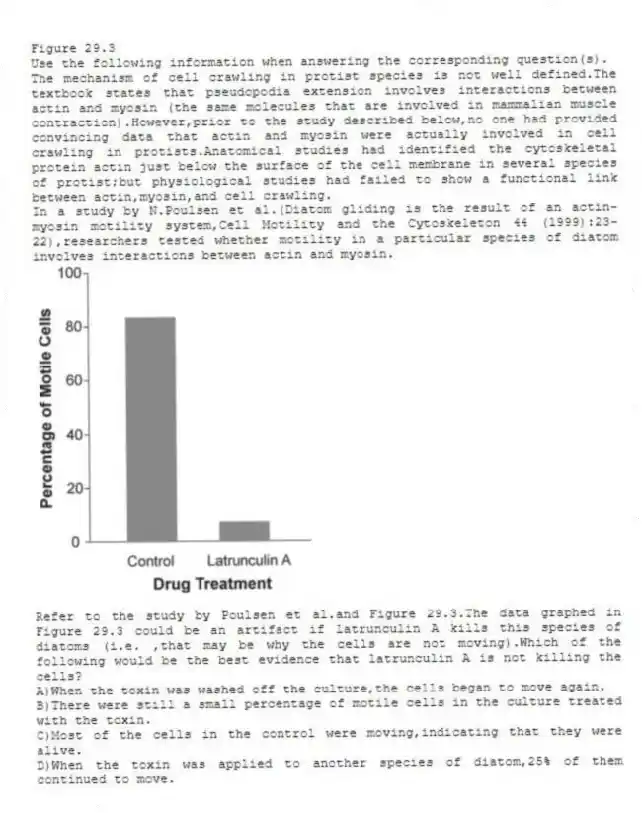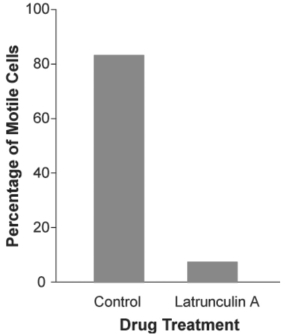
Figure 29.3
Use the following information when answering the corresponding question(s) .
The mechanism of cell crawling in protist species is not well defined.The textbook states that pseudopodia extension involves interactions between actin and myosin (the same molecules that are involved in mammalian muscle contraction) .However,prior to the study described below,no one had provided convincing data that actin and myosin were actually involved in cell crawling in protists.Anatomical studies had identified the cytoskeletal protein actin just below the surface of the cell membrane in several species of protist;but physiological studies had failed to show a functional link between actin,myosin,and cell crawling.
In a study by N.Poulsen et al.(Diatom gliding is the result of an actin-myosin motility system,Cell Motility and the Cytoskeleton 44 (1999) :23-22) ,researchers tested whether motility in a particular species of diatom involves interactions between actin and myosin.

-Refer to the study by Poulsen et al.and Figure 29.3.The data graphed in Figure 29.3 could be an artifact if latrunculin A kills this species of diatoms (i.e. ,that may be why the cells are not moving) .Which of the following would be the best evidence that latrunculin A is not killing the cells?
A) When the toxin was washed off the culture,the cells began to move again.
B) There were still a small percentage of motile cells in the culture treated with the toxin.
C) Most of the cells in the control were moving,indicating that they were alive.
D) When the toxin was applied to another species of diatom,25% of them continued to move.
Correct Answer:
Verified
Q18: Alternation of generations occurs in some protists.
Q22: One of the fish in your aquarium
Q23: The manufacture of which of the following
Q24: Which of the following groups is matched
Q25: Assume that some members of an aquatic
Q26: You discover a new species of protist.Which
Q28: Figure 29.3
Use the following information when answering
Q29: In examining a multicellular protist,you notice that
Q31: Figure 29.3
Use the following information when answering
Q32: Consider the following data:
(a)Most ancient eukaryotes are
Unlock this Answer For Free Now!
View this answer and more for free by performing one of the following actions

Scan the QR code to install the App and get 2 free unlocks

Unlock quizzes for free by uploading documents